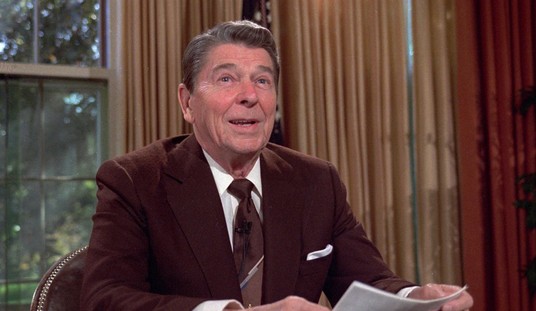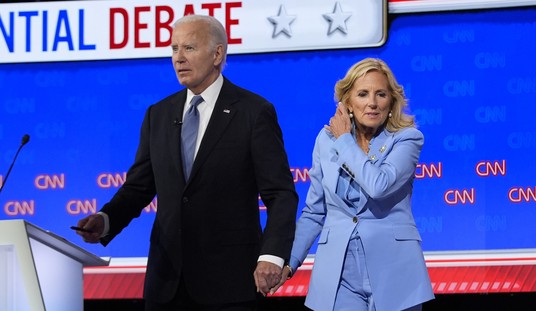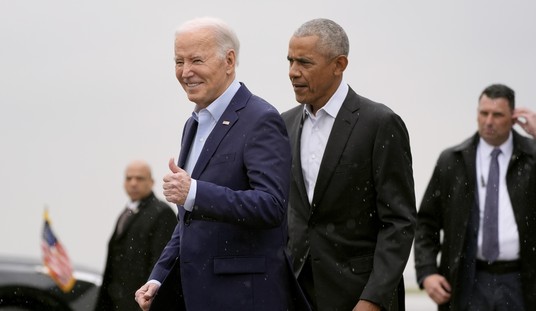There comes a time in every lawyer’s career when, in order to win a case, you find yourself making an argument so absurd that even you don’t believe it. That must have been how distinguished attorney Theodore B. Olson felt when he recently tried to convince the California Supreme Court that “state officials have the right to act as a check on the people’s power.”
I’ve been trying to wrap my brain around that line of reasoning ever since I first read of it yesterday, but I keep coming to the same conclusion: that Olson’s stance is the fast lane to totalitarianism.
How did a high-profile constitutional lawyer arrive at this quite remarkable moment in his career?
The quote in question can be found in this L.A. Times article about the latest wrinkles in California’s endless legal struggle over Proposition 8, the gay marriage ban:
During Tuesday’s hearing, Chief Justice Tani Cantil-Sakauye suggested that there would be no one to “safeguard the precious power” of citizen initiatives if their sponsors were not allowed to defend them.
“Doesn’t that make the initiative process illusory?” she asked.
Justice Carol A. Corrigan pointed out that the courts, not the governor or the attorney general, are supposed to decide a law’s constitutionality. She asked whether elected officials have “pocket vetoes” over voters.
The state high court has long allowed sponsors to defend ballot measures, but has never before ruled on whether they have an automatic right to do so.
Charles J. Cooper, representing ProtectMarriage, told the court that initiative sponsors represent the state, especially “when state executive officials have refused to do their duty.”
But Theodore B. Olson, a lawyer for two same-sex couples challenging Proposition 8, argued the California Constitution gives only state officials the right to represent the people in court, and state officials have the right to act as a check on the people’s power.
Unless you follow the story obsessively, you’ve likely by now lost track of the plot in this epic tale; so I’ll lay it out as simply as I can to get everybody on the same page:
• Up until 2000, gay marriages were not allowed in California; but because of unclear terminology in the state’s marriage statutes, some activists began to think that gay marriages were in fact legal, since they weren’t expressly forbidden.
• To rectify the language, in 2000 California voters passed by an overwhelming margin Proposition 22, which amended the statutes to specifically define marriage as being between a man and a woman.
• In 2004, San Francisco mayor Gavin Newsom tested the statute’s language by performing some gay marriages anyway, but they were later deemed to be illegal and were therefore voided.
• In 2005, the California State Assembly passed a bill legalizing gay marriage, contravening Prop. 22, but Governor Schwarzenegger vetoed it, as the Assembly bill clearly violated the will of the voters.
• In 2008, the California Supreme Court finally declared Prop. 22 to be in violation of the state’s constitution, and its earlier passage was invalidated, allowing legal gay marriages in the state for the first time.
• Outraged by this decision, gay marriage opponents then immediately sought to outmaneuver the courts by putting a new proposition on the ballot, Prop. 8, which would add an amendment to the state constitution re-defining marriage as exclusively between a man and a woman. Prop. 8 could never be ruled in violation of the state constitution, because it altered the constitution itself.
• Once again, the voters of California in 2008 voted to ban gay marriage, and Prop. 8 easily passed, and the state constitution was amended to define marriage as only between a man and a woman. California’s brief gay marriage phase was over.
• Gay marriage proponents immediately challenged Prop. 8, this time claiming not that it violated the state constitution, but rather violated the Constitution of the United States.
• As the case worked its way through the lower courts, state officials, as was customary when a state law is challenged, defended Prop. 8’s constitutionality.
• In 2010, Jerry Brown was re-elected governor, and he appointment Kamala Harris as the new Attorney General, and they both made the surprise announcement that neither of them would defend Prop. 8 in court anymore, because they personally opposed it, and did not feel it was fair that they be compelled defend an amendment which they felt was unconstitutional.
• As a result, an earlier lower court ruling striking down Prop. 8 would remain the final word on the matter, since the California state officials would not appeal the ruling, as happens in almost every single other case.
• Prop. 8’s sponsors then asked the courts to be allowed step in and appeal the ruling themselves, and do the job that the Governor and Attorney General refused to do.
• Gay marriage proponents then argued that the bill’s sponsors did not have “standing” in the case — in other words, they did not have the legal right to defend a state law, which under normal circumstances is always defended by state officials, nor private parties.
• The back-and-forth battle over who has standing to defend Prop. 8 has itself now reached the California Supreme Court, and on Wednesday they heard arguments on both sides, with Prop. 8. opponents claiming that only the Governor (and his official appointees) have standing, and if he drops the case, then it is over, and it will not be appealed any further; Prop. 8’s sponsors argued that the will of voters would thus be subject to the political whims of officials who only came into office after the law was already in effect, and that this denial of voters’ rights was itself unconstitutional.
And it was in this setting that Theodore B. Olson, one of the lead lawyers representing Prop. 8’s opponents, made the argument quoted in the title of this post: “State officials have the right to act as a check on the people’s power.”
Wow. That’s quite a statement. My interpretation of this line of reasoning is that democracy, the will of the people, and the power to vote on laws, are all null and void if bureaucrats decide that the populace is exercising to much “power.”
As far as I can tell, this isn’t just a slippery slope: It’s a sheer cliff straight into totalitarianism. Because if state officials can simply ignore or discard laws they don’t like, then what’s the point of having elections in the first place?
An don’t imagine for a moment that all this is irrelevant to you non-Californians. Quite the contrary: this case is a Very Big Deal for the entire country. If (as the court-watchers predict) the bill’s sponsors are granted permission to defend Prop. 8 in court, and if (as they plan to do) the case gets appealed all the way to the United States Supreme Court, then the status of marriage nationwide will be determined by the court’s final decision. If they rule that Prop. 8 is indeed in violation of the United States Constitution, then that will essentially legalize gay marriage in every state, because there will no longer be the recourse to ban gay marriage through state constitutional amendments.
But the case may not even get that far. And the outcome could be vastly more dire, whichever side of the debate you’re on: If the California Supreme Court sides with Theodore B. Olson and confirms that “State officials have the right to act as a check on the people’s power” by ignoring or discarding laws they personally oppose, then democracy as we know it will be gone.
One final note: I am appalled by the line of reasoning being pursued by Prop. 8’s opponents, even though I personally voted against Prop. 8 myself and am mildly in favor of gay marriage. By “mildly” I mean this: if asked, and forced to render an opinion on the subject of gay marriage, my attitude would be, “Eh, why not? Marry whoever or whatever you want. Why should I care?” But overwhelming my laissez-faire attitude is a much stronger opinion that this issue is totally unimportant; I can’t believe how much time we as a society have wasted on it.
On the other hand, there is something I do care about and value highly: and that is American democracy. If the voters passed a law, twice, then hey, the voters passed a law and their will needs to be followed.
If the only way to make gay marriage legal in America is to ignore the will of the people and instead hand unrestricted power to functionaries and bureaucrats, then we will have undermined the foundations of our nation to score a pyrrhic victory in a trivial cultural battle.
Luckily, the California Supreme Court justices don’t appear to be buying Olson’s argument, but even so, he ought to ask himself: What if the tables were turned, and citizens of a state voted to allow gay marriage, but the state’s governor refused to defend the new law against a court challenge, allowing gay marriage opponents to quash a popular initiative? Would Olson be making the same argument then? Probably not. And when you, as a lawyer, make an argument that you yourself don’t believe in, just to score a partisan point, then the time has come to take a long hard look in the mirror.









Join the conversation as a VIP Member